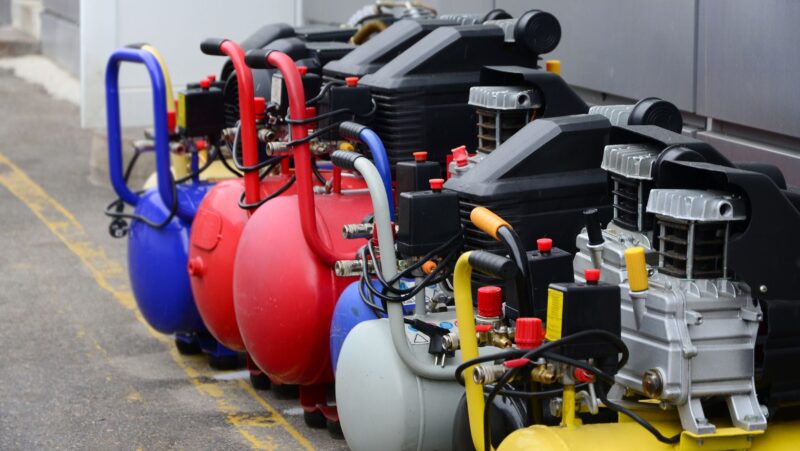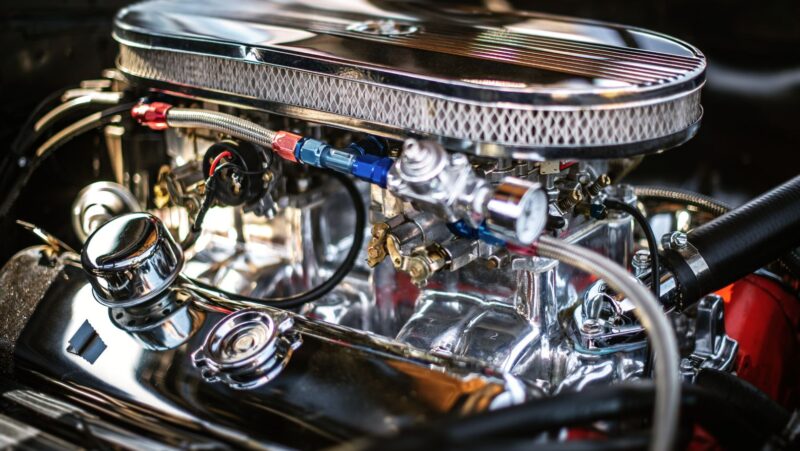
In the fast-paced and competitive industry world, efficiency is a critical factor that can make or break a business. With the increasing demand for higher productivity, better quality, and lower costs, various sectors constantly seek ways to enhance their operations.
One key component driving this enhancement is instrumentation. Instrumentation plays a pivotal role in monitoring, controlling, and optimizing industrial processes, where solutions like PCI contribute significantly to overall industrial efficiency. This article delves into the various aspects of instrumentation and how it enhances industrial efficiency.
Understanding Instrumentation
Instrumentation refers to collecting devices and systems used to measure, monitor, and control industrial processes. These instruments include sensors, transducers, controllers, analyzers, and other devices that provide critical data about various parameters such as temperature, pressure, flow, level, and composition. The data collected by these instruments is used to make informed decisions, automate processes, and ensure that operations are running smoothly and efficiently.
Key Roles of Instrumentation in Industry
Process Monitoring and Control
One of the primary roles of instrumentation is to monitor and control industrial processes. Accurate and real-time monitoring tools like PARCview allows operators to keep track of process parameters and ensure that they remain within the desired ranges.
For instance, in a chemical plant, instrumentation can monitor the temperature and pressure of reactors, ensuring that reactions occur under optimal conditions. This not only improves product quality but also enhances safety by preventing conditions that could lead to accidents or equipment damage.
Instrumentation systems are integral in various industries, including manufacturing, oil and gas, pharmaceuticals, and food processing. These systems utilize sensors and control devices to gather data on variables such as temperature, pressure, flow rate, and chemical composition.
The data is then analyzed, and adjustments are made automatically or manually to maintain the process within its set parameters. For example, in an oil refinery, instrumentation can control the flow of crude oil through distillation columns, optimizing the separation of different hydrocarbon components and improving overall efficiency.
Automation and Precision
Instrumentation is at the heart of industrial automation. By integrating instruments with control systems such as Programmable Logic Controllers (PLCs) and Distributed Control Systems (DCS), industries can automate complex processes. Automation enhances precision, reduces human error, and increases productivity.
For example, in a manufacturing plant, automated instrumentation can control the assembly line, ensuring that each component is precisely placed and assembled, leading to higher consistency and quality.
Energy Management
Efficient energy management is crucial for reducing operational costs and minimizing environmental impact. Instrumentation plays a vital role in monitoring energy consumption and identifying areas where energy is being wasted.
By implementing energy management systems that rely on accurate instrumentation, industries can optimize their energy usage, reduce costs, and achieve sustainability goals. For instance, in a power plant, instrumentation can monitor the efficiency of turbines and boilers, allowing operators to make adjustments that enhance energy efficiency.
Predictive Maintenance
Traditional maintenance practices often rely on scheduled inspections and reactive repairs, which can be costly and lead to unexpected downtime. Instrumentation enables predictive maintenance by continuously monitoring the condition of equipment and identifying signs of wear or potential failure.
For example, vibration sensors on rotating machinery can detect abnormalities that indicate bearing wear or misalignment. By addressing these issues before they lead to equipment failure, industries can minimize downtime, reduce maintenance costs, and extend the lifespan of their assets.
Quality Assurance
In industries such as pharmaceuticals, food and beverage, and electronics, maintaining high-quality standards is paramount. Instrumentation ensures that quality is consistently maintained by monitoring critical parameters throughout the production process.

For example, in the pharmaceutical industry, instruments can measure the concentration of active ingredients in a drug formulation, ensuring that each batch meets the required specifications. This not only ensures product quality but also compliance with regulatory standards.
Environmental Monitoring and Compliance
Environmental regulations require industries to monitor and control their emissions and waste. Instrumentation provides the necessary tools for measuring pollutants, ensuring that industries comply with environmental standards.
For instance, in a wastewater treatment plant, instruments can monitor the levels of contaminants in the effluent, ensuring that it meets discharge regulations. By maintaining compliance, industries can avoid fines, protect the environment, and enhance their reputation.
Advancements in Instrumentation Technology
The field of instrumentation is continually evolving, driven by technological advancements. Some of the recent developments that have further enhanced industrial efficiency include:
Internet of Things (IoT) Integration
The integration of IoT with instrumentation has revolutionized industrial operations. IoT-enabled instruments can communicate and share data in real-time, allowing for more comprehensive monitoring and control. This connectivity enables remote monitoring, where operators can access process data from anywhere, making it easier to manage multiple facilities and respond to issues promptly.
Wireless Instrumentation
Wireless instrumentation eliminates the need for extensive cabling, reducing installation costs and improving flexibility. These instruments can be easily deployed in remote or hazardous locations, where traditional wired instruments might be impractical. Wireless sensors can transmit data to central control systems, providing real-time insights and enhancing overall process visibility.
Advanced Analytics and Machine Learning
The data collected by instruments can be analyzed using advanced analytics and machine learning algorithms to gain deeper insights into process performance. These technologies can identify patterns, predict trends, and provide recommendations for optimization. For instance, machine learning algorithms can analyze historical data to predict equipment failures, allowing for proactive maintenance and reducing unexpected downtime.
Smart Sensors
Smart sensors are equipped with processing capabilities that allow them to perform data analysis and diagnostics at the source.

These sensors can detect anomalies, perform self-calibration, and communicate directly with control systems. The use of smart sensors enhances the accuracy and reliability of measurements, leading to better process control and efficiency.
Conclusion
Instrumentation plays a crucial role in enhancing industrial efficiency by providing the tools necessary for monitoring, controlling, and optimizing processes. From process monitoring and automation to energy management and predictive maintenance, the benefits of instrumentation are far-reaching. As technology continues to advance, the capabilities of instrumentation will only grow, offering even greater potential for improving industrial efficiency. By embracing the latest developments in instrumentation, industries can achieve higher productivity, better quality, and increased competitiveness in an ever-evolving market.










